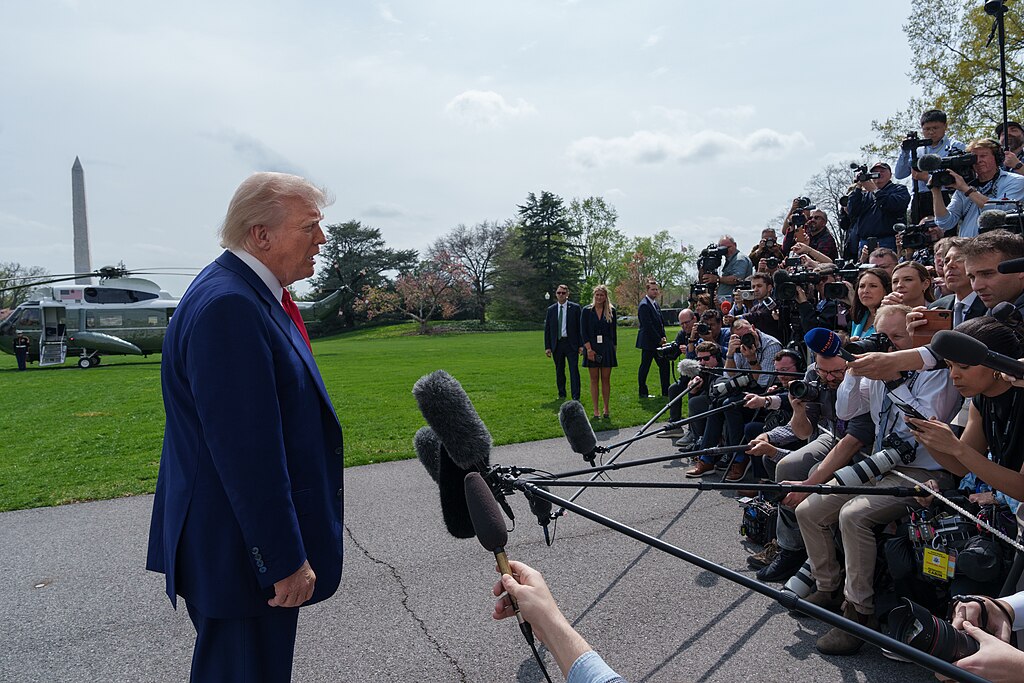A coalition of federal employee unions is seeking to overturn a sweeping executive order issued by President Donald Trump that strips collective bargaining rights from workers at dozens of federal agencies and departments. The lawsuit, filed in the U.S. District Court for the Northern District of California, alleges that the March 27 directive violates constitutional protections, statutory labor rights, and due process.
The complaint—brought by six major labor organizations including the American Federation of Government Employees (AFGE), American Federation of State, County and Municipal Employees (AFSCME), and Service Employees International Union (SEIU)—claims the order unlawfully retaliates against unions for engaging in speech critical of the administration and exceeds the president’s authority under the Civil Service Reform Act of 1978.
“The White House made clear that it was eliminating federal labor law protections for the vast majority of federal workers in response to constitutionally-protected speech and petitioning activity,” the complaint states.
Order targets broad swath of federal agencies
The executive order, titled “Exclusions from Federal Labor-Management Programs,” invokes national security to remove Chapter 71 labor protections under Title 5 of the U.S. Code from nearly every cabinet-level department, including the Departments of State, Veterans Affairs, Defense, Treasury, Justice, and Homeland Security. Also excluded are agencies such as the Environmental Protection Agency, Social Security Administration, and the National Science Foundation.
Although the order cites security considerations, the plaintiffs argue that it extends far beyond any legitimate national security purpose. For instance, the Department of Veterans Affairs and the EPA—agencies without primary national security missions—are included in their entirety.
In its accompanying Fact Sheet, the White House stated that certain “hostile Federal unions” had “declared war on President Trump’s agenda.” It specifically cited AFGE’s statements about “fighting back” against administration policies and noted that VA unions had filed “an average of over one” grievance per day since the inauguration.
According to the unions, this rhetoric reveals a retaliatory motive: “The avowedly retaliatory nature of the Exclusion Order and its attempt to punish federal unions who engage in politically disfavored speech and petitioning activities and decline to ‘work with’ the President renders it unconstitutional under the First Amendment.”
Sweeping changes to labor relations
The order directs agencies to cease participating in grievance procedures, terminate official time for union representatives, stop payroll deductions for union dues, and disregard contract provisions governing discipline, performance improvement plans, and reductions in force (RIFs). Agencies are instructed to treat terminated collective bargaining agreements as void, without offering employees or unions any opportunity to respond.
“Those agencies and subdivisions are no longer required to collectively bargain with Federal unions,” the Office of Personnel Management (OPM) stated in a guidance memo issued prior to the public release of the order.
In the same memo, OPM instructed agencies to “promptly return” employees on official time to their regular duties and to eliminate agency payroll dues deductions. It also directed agencies to shorten or remove PIPs for underperforming employees and proceed with RIFs without regard to prior contractual protections.
The lawsuit claims these measures violate the Fifth Amendment’s due process and equal protection clauses, as well as statutory provisions under the Civil Service Reform Act. Plaintiffs argue the order eliminates bargained-for rights without notice or an opportunity to contest the underlying national security rationale.
History of legal and political conflict
The complaint places the order in the context of the administration’s broader effort to reduce the size and influence of the civil service. Earlier this year, Trump created the Department of Government Efficiency, led by Elon Musk, and announced plans for large-scale workforce reductions. In parallel, multiple lawsuits have challenged actions affecting data privacy, workforce protections, and the restructuring of agencies.
According to the complaint, unions have been vocal opponents of these initiatives and have prevailed in court on several fronts, including orders reinstating fired probationary employees and blocking cuts to press freedom programs. Plaintiffs allege that this pattern of litigation was a motivating factor in the administration’s move to eliminate labor protections.
They cite public comments from Musk, reposted on X, calling the unions a “coordinated hit job” against the administration and asserting they were behind “almost every single lawsuit” filed against it. President Trump himself has said his administration would target law firms that “behave very badly, very wrongly.”
A separate lawsuit filed by the administration in Texas federal court the same day as the executive order seeks to void existing collective bargaining agreements, calling them “obstructionist” and incompatible with executive authority.
Questioning statutory authority
Under 5 U.S.C. § 7103(b)(1), the president may exclude certain agencies from Chapter 71 only if they have “as a primary function intelligence, counterintelligence, investigative, or national security work,” and if applying Chapter 71 is incompatible with those missions.
Plaintiffs argue that past presidents have applied this authority narrowly, excluding only specific subdivisions—not entire departments. President Trump’s use of the provision to eliminate protections across the federal government, they contend, represents an “unprecedented exercise of executive authority” that Congress never intended.
“President Trump’s attack on unions across the government therefore exceeds his authority granted by Congress under the CSRA,” the complaint asserts.
The lawsuit seeks declaratory and injunctive relief blocking the enforcement of the order and restoring bargaining rights and contractual protections for affected federal workers.
For more information, see https://www.afge.org/globalassets/documents/generalreports/2025/american-federation-of-government-employees-afl-cio-et-al-v.-trump-et-al-complaint.pdf





